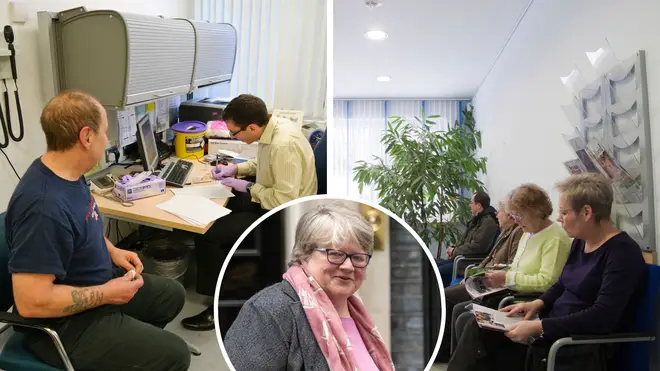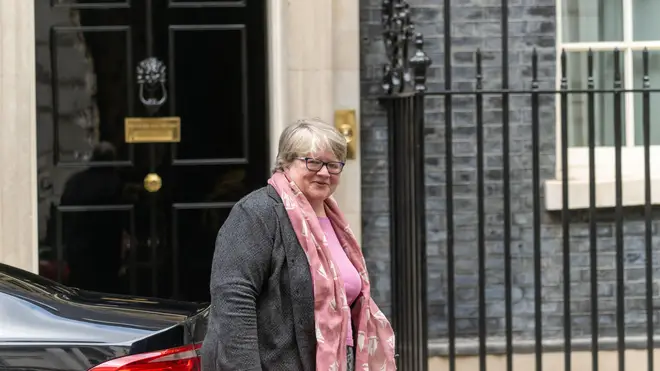
Ben Kentish 10pm - 1am
22 September 2022, 00:07 | Updated: 22 September 2022, 08:28

All GP patients in England who need urgent treatment will receive appointments the same day in a major shake up to deal with crippling backlogs.
The move will also see patients in England be offered an appointment for non-urgent needs within two weeks.
The fresh 'plan for patients' is set to be outlined by Health Secretary Therese Coffey on Thursday.
LBC's Nick Ferrari put her on the spot about how the plans would be enforced, asking: "What happens to a doctor who just fails to meet your requests?"
When Dr Coffey did not answer, Nick said: "Clearly nothing. There's no sanction, is there?"
The Health Secretary said that a failure to meet targets may result in patients choosing to go to a different GP.
Read more: 'Lifeline' as energy bills for pubs and shops to be capped under 'unprecedented' scheme
Read more: NHS Manager 'fed up' at service's portrayal over Queen's bank holiday cancellations
"But there is no sanction, is there?" Challenged Nick.
"It's a headline-grabber, isn't it, secretary of state?"
He added: "It's all words."
Dr Coffey said that was "not true" and said she wanted to work 'proactively' to help NHS services develop at a local level.

'This is all words, isn't it?'
The plans also cover the introduction of new telephone systems to avoid early morning scrambles at surgeries, publishing data so patients can assess how their GP practice is performing compared to other local surgeries and "freeing up funding" for practices to employ more staff.
The worsening backlogs in the health service have hit record highs in recent years, with the Covid-19 pandemic contributing to delayed appointments and surgeries.
In a bid to tackle the problem, the plan will build on the NHS winter plan, with measures going across the priorities that matter most to patients – ambulances, backlogs, care and doctors and dentists.
Pharmacies will also help ease pressures on GPs and free up time for appointments by managing and supplying more medicines such as contraception without a GP prescription - potentially freeing up to two million appointments a year.
But leading GPs have slammed the plans saying they will have "minimal impact" on patient care.
And publishing "league tables" of surgeries will not "improve access or standards of care", the Royal College of GPs said.

'Destroy the false god that is the NHS'
Health Secretary Thérèse Coffey is set to say: "I will put a laser-like focus on the needs of patients, making their priorities my priorities and being a champion for them on the issues that affect them most.
"Our Plan for Patients will make it easier to get a general practice appointment and we will work tirelessly to deliver that, alongside supporting our hardworking GP teams.
"We know this winter will be tough and this is just the first step in our work to bolster our valued NHS and social care services so people can get the care they need."
The "national endeavour" to get the NHS back on track will rely on the rallying of the army of volunteers who provided support during the pandemic to support the sector.

But Professor Martin Marshall, chair of the Royal College of GPs, said more expectations for the service would only add to the "intense workload and workforce pressures".
"It's a shame that the Health Secretary didn't talk to the College and to our members on the front line before making her announcement because we could have informed her of what is really needed to ensure a GP service that meets the needs of patients and is fit for the future," he said.
"Lumbering a struggling service with more expectations, without a plan as to how to deliver them, will only serve to add to the intense workload and workforce pressures GPs and our teams are facing, whilst having minimal impact on the care our patients receive.
"Whilst we support transparency we strongly caution against creation of 'league tables', which we know from international research evidence do not work in improving access to or standards of care."